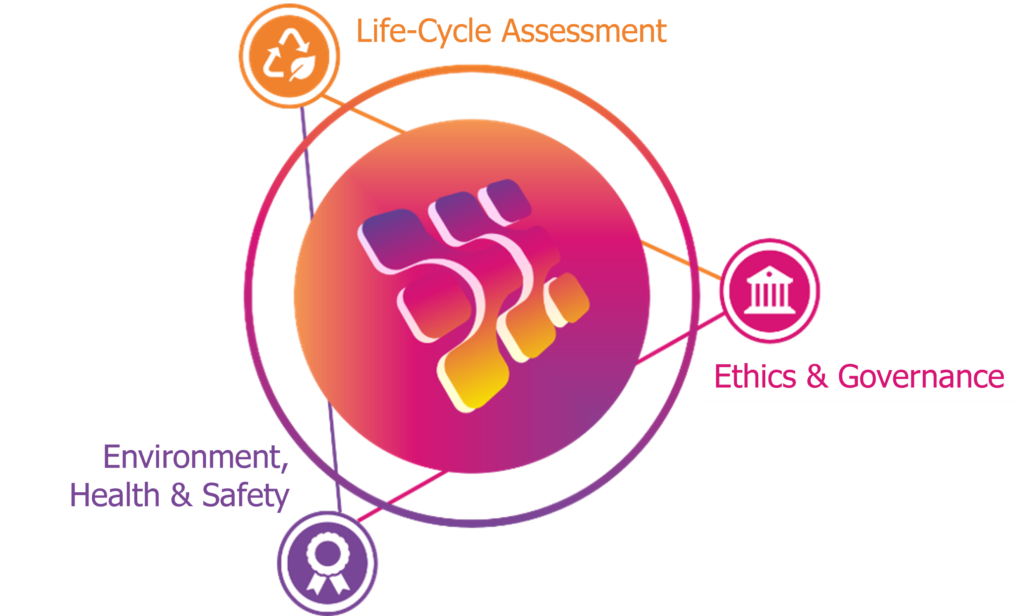
Implementation Roadmap for EU-Project Collaboration
Seeking to provide help to EU-funded projects dealing with sustainable nanofabrication, the new NanoFabNet Implementation Roadmap for EU-Project Collaboration includes a series of core components and enablers to advance its goal in a meaningful way:
- Partnerships & Collaborations: these are critical to unlocking the full potential of any EU-funded project. New and innovative collaborative models must be identified to bring together or put in contact different EU-projects alongside other stakeholders like industry, policy makers and civil society.
- Data & Knowledge Generation: obtaining access to reliable and timely data or state-of-the-art knowledge is a key component to successfully achieve the aims and goals of any research and innovation (R&I) project. Data is needed to understand the starting point of any project. In all likelihood, the data or knowledge a project requires may not exist for all targets and indicators, and – even when it does exist – it may exist in varying levels of quality and accessibility. This must be addressed through actions related to capacity building and by enabling channels of data-exchange between projects, such as envisaged by the GO FAIR-initiative [1].
- Innovation: many times, the solutions or needs related to sustainable nanofabrication may either not yet exist or be in very early stages of development. In part, the technological innovation and the scaling up of new processes and/ or products continuously arise from R&I projects and is transforming and advancing the field of sustainable nanofabrication. Therefore, supporting the innovation capacity of the EU-funded projects through enhancing and facilitating collaboration among them is crucial to move forward in the right direction and timely manner. This will help to put Europe in an advanced position in the field of sustainable nanofabrication.
The NanoFabNet Implementation Roadmap for EU-Project Collaboration has been created by expert of the BioNanoNet using information that has been gathered through different activities performed within the NanoFabNet Project, like:
- Mapping and listing of former and current EU-funded projects relevant for the sustainable nanofabrication field,
- Active dialogue with NanoFabNet’s stakeholders maintained during the 1st and 2nd Development Workshops, including a posterior analysis from the feedback,
- Integration of complementary actions planned and/or undergone with other R&I initiatives like the NanoSafety Cluster [2] (NSC), the EURONanoLAB initiative [3] and EURAMET[4], to develop collaborations to widen and strengthen the sustainable nanofabrication field across Europe.

The NanoFabNet Project has defined its own concept of Sustainability in Nanotechnology and Nanofabrication, that will be also adopted and promoted within the NanoFabNet Hub. This concept rests on 3 strong and well-identified pillars. These pillars are:
- Environment, Health & Safety issues in Nanotechnology & Nanofabrication,
- Life Cycle Sustainability (LCA) in Nanotechnology & Nanofabrication, and
- Ethics and Governance issues in Nanotechnology & Nanofabrication.
[1] GO FAIR: https://www.go-fair.org/fair-principles/
[2] NanoSafety Cluster: https://www.nanosafetycluster.eu/
[3] EURONanoLAB: http://euronanolab.eu/
[4] EURAMET: https://www.euramet.org/

